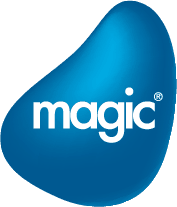According to Magic Software HTML5’s legacy problems, such as security, mean that it isn’t suited to enterprise mobile applications.
HTML’s legacy problems, such as security, mean that HTML5 is not currently suited to enterprise mobile applications.
Magic Software’s UK Managing Director, David Akka, believes that HTML5’s praise as the ‘catch all’ solution to a fragmented mobile device market is premature, and companies need to think twice before investing heavily in mobile app development.”HTML5 is not really an enterprise grade technology. It is based around sharing photos, sharing documents, sharing video – enterprise is part of that sure. But when the application is mainly a transactional application that needs to include things like consistency, data integrity, rollbacks and so on, HTML5 is not the right platform to do that today. It has inherited the weaknesses of HTML’s infrastructure,” he said.
Akka remains sceptical of HTML5s use for mobile business service delivery outside of a few select use cases, claiming its unreliability and security remain as issues of its HTML heritage.
“There is a lot of hype around HTML. Although it has improved over the last 15 years, it is still highly dependant on web browsers – with all the implications of that. Security is one of them – with issues such as SQL insertion or other vulnerabilities. It is also highly restricted by bandwidth – the infrastructure of [mobile] technology means that there are multiple objects being downloaded to the cloud and then synchronised, and only then rendered. When you have a potential bandwidth bottleneck, some of the objects are not being synchronised completely,” he said.
This pops up in the form of bugs, which most users will be familiar with. Akka uses the example of Facebook’s notoriously buggy mobile apps – which are essentially HTML5 builds with different OS compatibility place on the front end. Facebook often mis-tags photos due to synchronisation and caching issues. This means that HTML5 isn’t really reliable.
“If you bring that to a business context, it just can’t work for things like purchase orders.”
This often means that companies get stuck in vicious patching cycles – turning a formerly tightly focused app into an unwieldy mess as patch after patch is applied like bandaids – which also increases costs and wastes company time.
Akka says that his company will often recommend the MEAP (Mobile Enterprise Application Platform) to clients looking to migrate enterprise desktop services to mobile.
“MEAP is enterprise graded, it has built in security, it has transaction based mechanisms, fail-over mechanisms, the ability to deploy automatically across multiple devices – including security and management of [mobile],” he said.
“We don’t have a hidden agenda here, its more about trends we see in the market – and what we see is HTML5 is a bit too hyped.”Having said that, Akka says he ‘has no preference’ for whether HTML5 is the solution to mobile industry fragmentation or not; and that HTML5 may well work in specific use cases.”We have learned what the pitfalls of HTML5 are. Although I am very much in favour of HTML5, I think that in about 5-10y it will be the standard.”
Magic Software is a global vendor of applications platforms, and is listed on the NASDAQ. It has been around for 30 years, operates in 50 countries and boasts millions of customers, such as BSkyB in the UK.
Click for the Online version
